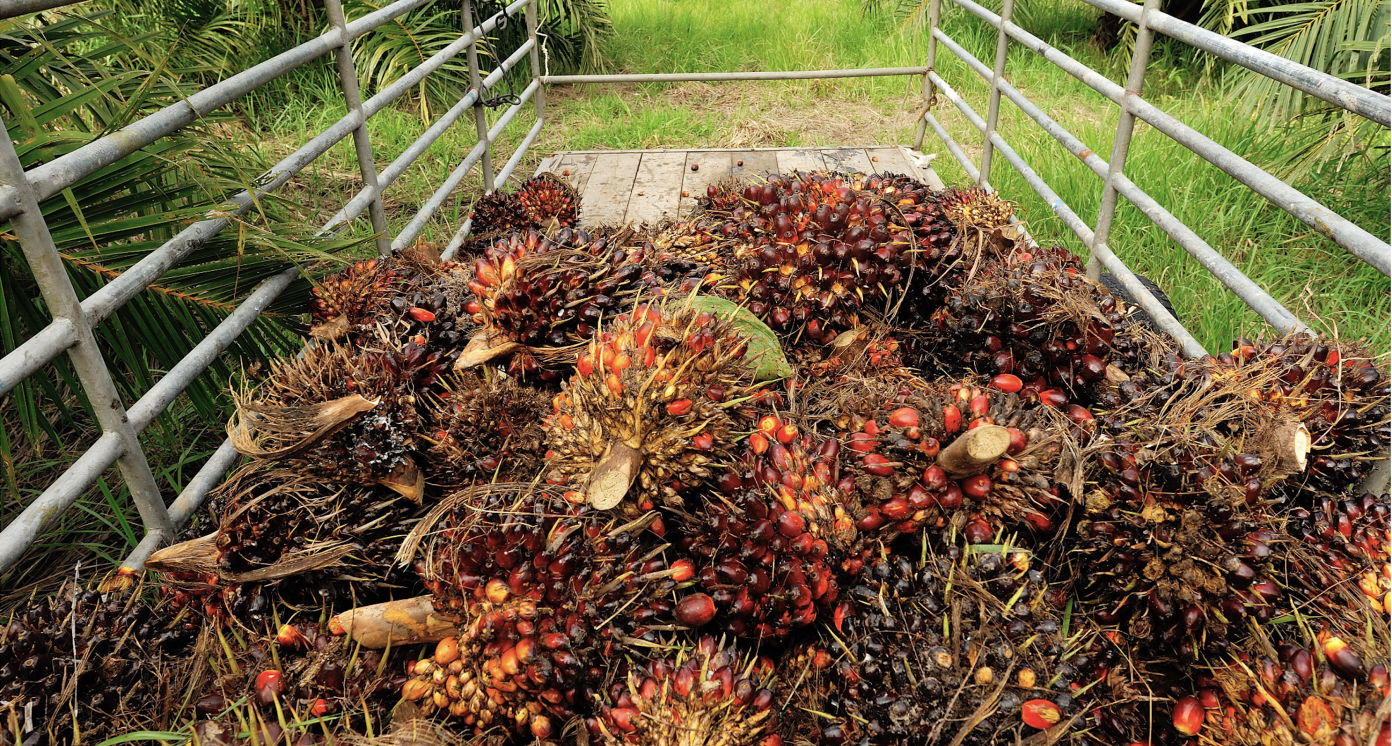Sustainable and Organic Palm Oil Production and Processing
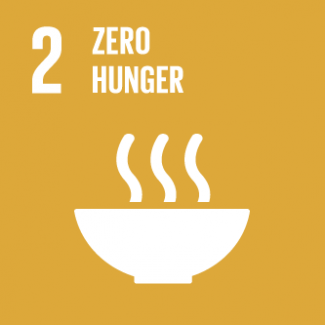
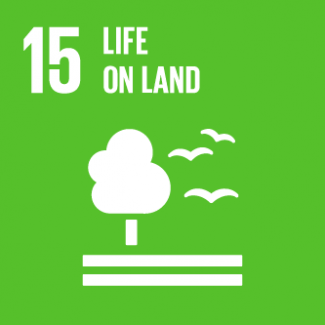
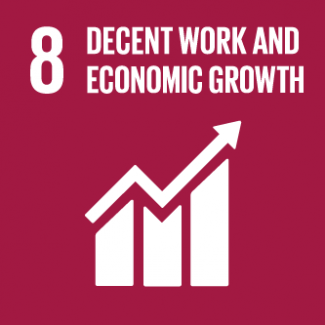
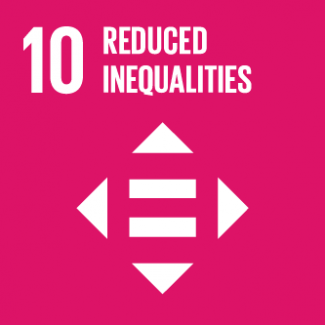
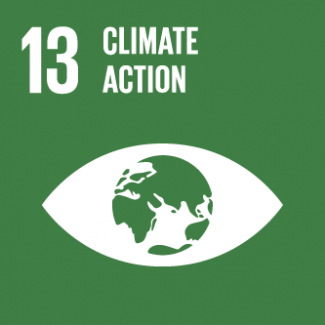
Business Model Description
Build and operate sustainable and organic palm oil production and processing facilities that sell on local and international markets, in line with the Roundtable on Sustainable Palm Oil (RSPO) Principles utilising either in-grower (where palm is sourced from own farms) or out-grower (where the supply farms are not owned by the processor, but there are binding contracts in place with supplier farmers) models.
Expected Impact
Reduction of negative environmental impacts, improved farmer incomes, and increased value chain employment opportunities as well as contributions to food security.
How is this information gathered?
Investment opportunities with potential to contribute to sustainable development are based on country-level SDG Investor Maps.
Disclaimer
UNDP, the Private Finance for the SDGs, and their affiliates (collectively “UNDP”) do not seek or solicit investment for programmes, projects, or opportunities described on this site (collectively “Programmes”) or any other Programmes, and nothing on this page should constitute a solicitation for investment. The actors listed on this site are not partners of UNDP, and their inclusion should not be construed as an endorsement or recommendation by UNDP for any relationship or investment.
The descriptions on this page are provided for informational purposes only. Only companies and enterprises that appear under the case study tab have been validated and vetted through UNDP programmes such as the Growth Stage Impact Ventures (GSIV), Business Call to Action (BCtA), or through other UN agencies. Even then, under no circumstances should their appearance on this website be construed as an endorsement for any relationship or investment. UNDP assumes no liability for investment losses directly or indirectly resulting from recommendations made, implied, or inferred by its research. Likewise, UNDP assumes no claim to investment gains directly or indirectly resulting from trading profits, investment management, or advisory fees obtained by following investment recommendations made, implied, or inferred by its research.
Investment involves risk, and all investments should be made with the supervision of a professional investment manager or advisor. The materials on the website are not an offer to sell or a solicitation of an offer to buy any investment, security, or commodity, nor shall any security be offered or sold to any person, in any jurisdiction in which such offer would be unlawful under the securities laws of such jurisdiction.
Country & Regions
- Sierra Leone: Eastern Province
- Sierra Leone: Southern Province
- Sierra Leone: Northern Province
Sector Classification
Food and Beverage
Development need
Food security is a significant challenge in the country with 25-50% of the population facing some level of food insecurity (1). Despite the availability of fertile arable land, 75% remains uncultivated, and the country relies heavily (80% of foodstuffs consumed) on import (2). Farmers suffer from low yield and high cost of transport, as well as lack of access to financing. At the same time, agriculture is a critical part of the economy - providing many jobs and the largest portion of GDP (3). The fishery industry also suffers from overfishing, and illegal, unreported, and unregulated (“IUU”) fishing particularly by foreign fleets leading to sustainability challenges (4).
Policy priority
Food security and agriculture are a major focus for the government. Improvements have been made by development partners, national policies, and Apex Bank. The stated objective in the Mid Term National Development Plan includes policy interventions for improving financial access, better inputs, improved mechanization, promotion of research, and others (3). Environmental protection and sustainability are also considered. The Ministry of Agriculture and Forestry is focused on rice self-sufficiency, livestock development, crop diversification, and forestry management from a policy level.
Gender inequalities and marginalization issues
While women are proportionally more employed in agriculture, and there was a recent positive development with land reform so that women can now own land (5), there are significant inequalities in the value chain of higher value agricultural activities and women overall benefit less economically from this sector while also facing more challenges, such as lack of access to information and resources (6). Women are also more affected by malnutrition compared to men (6). In addition, agriculture is a major focus for all regions of Sierra Leone apart from the urban Freetown - which is far more developed than other regions. Rural areas are more marginalised overall with respect to food security, employment and health outcomes, despite being the main places where agricultural activities take place.
Investment opportunities introduction
Improving productivity and commercialization of the agricultural sector is a priority. The Agricultural Transformation Strategy plans to double production of rice, forestry, and livestock, as well as to increase the budgetary allocation to 10% to align with the Maputo Accord and attract external investment. Furthermore, in 2021 several policy shifts were announced by the Ministry of Agriculture and Forestry, aimed at increasing land under cultivation and improving yields through measures such as establishing a US$10 million agriculture credit fund to expand access to finance; e-wallet input delivery; mechanization promotion including through establishment of machine ring centers; and addition of e-extension services. The main opportunities seem to be in value added activities in processing, as well as various technological and mechanisation support activities to improve efficiency, yields, transport, market access and so forth (3).
Key bottlenecks introduction
Farmers suffer from low yield and high cost of transport, as well as lack of access to financing and insurance services. There is a low level of mechanisation and access to tools and equipment, such as irrigation (3). There have also been challenges with land ownership, especially for women (6). The fisheries industry also has a lack of infrastructure and value chain development (4). In terms of agro-processing, the level is low in the country, and there are only a few successful examples (3).
Food and Agriculture
Development need
Agriculture faces many challenges, including lack of mechanization and a high cost of production, lack of access to finance and insurance services, and lack of adequate storage facilities and processing, leading to more post-harvest losses. There is also a lack of access to improved seed, and the linkages between the manufacturing sector and primary sectors, such as agriculture, have been weak (3).
Policy priority
Agriculture is clearly stated as a major priority for the government in the Mid Term National Development Plan (3). In addition, the National Agricultural Transformation Strategy 2019-2023 includes more detailed plans, such as to double production of key crops (7). The Ministry plans for capacity building as well as a USD 10 million agriculture fund (3). There is also significant development agency support, such as from the FAO (8). The Government of Sierra Leone, through the Ministry of Trade and Industry (MTI), is implementing the Sierra Leone Agro-Processing Competitiveness Project with financing from the International Development Association (IDA) of the World Bank Group.
Processed Foods
Pipeline Opportunity
Sustainable and Organic Palm Oil Production and Processing
Build and operate sustainable and organic palm oil production and processing facilities that sell on local and international markets, in line with the Roundtable on Sustainable Palm Oil (RSPO) Principles utilising either in-grower (where palm is sourced from own farms) or out-grower (where the supply farms are not owned by the processor, but there are binding contracts in place with supplier farmers) models.
Business Case
Market Size and Environment
USD 100 million - USD 1 billion
The total Sierra Leone market for palm oil was 500 million USD in 2017 (13), representing approximately 14% of GDP, with some imported palm oil as well, thus indicating room for growth in the local market (13).
While some experts and investors had concerns about declining markets, such as in Europe, global markets have overall grown quite steadily over the past decades (14). However, Sierra Leone's export market thus far has been rather small (15) and so local market opportunities were assumed as the base for the market size.
Indicative Return
10% - 15%
Palm oil experts have differing views on returns that could be achieved, with some concern about global market decline and social issues faced by some large-scale processors. Local data was limited but data from other West African countries indicate that 10-15% IRR are a reasonable estimate if palm oil processing is done sustainably and considering the social factors as well (16, 17).
Investment Timeframe
Long Term (10+ years)
Local and regional data is limited but Indonesian palm investments can see a payback period of approximately 7 years (17) and experts and investors in Sierra Leone and West Africa indicate longer timelines of 10-15 years. Given also the challenges that some companies have faced at a community level, such as unrest and land conflict, a longer timeline seems reasonable to expect (18).
For additional reference, traditional palm variety take 5-10 years to reach maturity and even newer ones take between 3-6 years (13).
Ticket Size
> USD 10 million
Market Risks & Scale Obstacles
Business - Supply Chain Constraints
Business - Supply Chain Constraints
Impact Case
Sustainable Development Need
While palm oil is the most widely consumed, efficient and versatile vegetable oil in the world, it is also a major cause of deforestation. Only 23% of African companies are certified by the Roundtable on Sustainable Palm Oil (RSPO) (20).
Most of the land cultivated for palm oil in Sierra Leone is held by smallholder farmers and yet they struggle with poor management practices, poor planting materials, and very low yields (average 2-4 tonnes of FFB per hectare) while commercial estates are better managed and higher yielding (average of 16-18 tonnes of FFB per hectare (14).
Food insecurity is a significant issue in Sierra Leone - with between a quarter to almost half of the population facing inadequate food supply, food insecurity or malnutrition (1).
Gender & Marginalisation
Women are involved economically in all segments of the value chain except the industrial segment that offers better wages and working conditions (13). At the same time, equal numbers of women and men seem to be in leadership positions in the sector (14).
Women have poor access to financial and agriculture extension services in Sierra Leone (13).
Expected Development Outcome
Sustainable palm oil processing via RSPO aligned (9) companies and practices will help minimise negative environmental effects such as deforestation.
Focusing on adding processing capacity helps ensure larger and more stable markets for smallholder farmers. In addition, the RSPO aligned processors in Sierra Leone provide a range of support for smallholder farmers such as training and inputs, but also access to financial services and certification (14, 21, 22).
Palm oil provides about 10 percent of total calorie supply per day and constitutes up to 70 percent of calories consumed from edible oils. It is a rich source of carbohydrates, fats and vitamins (14). It can therefore be beneficial towards food security in the country.
Gender & Marginalisation
Women in the palm oil industry are already in leadership positions and found in all parts of the value chain, but somewhat less so in the industrial part. Investing in RSPO aligned palm oil processing should also bring in more women into the higher value parts of this value chain.
Primary SDGs addressed

2.3.2 Average income of small-scale food producers, by sex and indigenous status
2.1.1 Prevalence of undernourishment
National average income is 1,004 USD while median income is 765 in 2023 (23).
In 2020, the prevalence of undernourishment in Sierra Leone was 27% (27)
Proxy of 6% growth of the agricultural sector (2015) (24).
N/A

15.2.1 Progress towards sustainable forest management
An estimated 39% of Sierra Leone is forested with 22% of the forests in 50 forest reserves and conservation areas, but over 34% of forest has been lost between 1975 and 2018. This is seen the most in Eastern Province and agriculture is a major cause (4).
In 2021, the government stated an aim to expand forest cover by planting 5 million trees over 5 years (4).
Secondary SDGs addressed



Directly impacted stakeholders
People
Gender inequality and/or marginalization
Planet
Corporates
Public sector
Indirectly impacted stakeholders
People
Outcome Risks
Middlemen and traders may lose their jobs or income as a result from competition of large processors, since smallholders tend to process their own oil, versus selling the palm fruit to larger processors.
Increased focus on sustainable palm may bring up consumer prices for local consumers.
Impact Risks
Farmers can be reluctant to enter into contracts or a credit agreement with large scale producers (13), thus compromising the overall success of the processing facilities.
Even though they claim to be RSPO aligned, there is a risk that practices on the ground will continue to be detrimental to the environment and to communities due to poor audit or reporting.
EU traceability rules are changing and will make it harder for those working in tree based commodities, such as palm and cocoa.
Impact Classification
What
Sustainable palm oil processing reduces negative environmental impacts of conventional palm oil practices, improves farmer incomes, and increases employment opportunities in palm growing regions.
Who
Smallholder palm farmers benefit from improved support and income, while communities benefit from improved food access and employment opportunities.
Risk
Failing to properly audit farming practices may result in continued negative environmental and social impacts on communities. In addition, processors may have difficulty securing contracts with farmers.
Contribution
Increased focus on higher value added activities in agriculture results in more economic value being captured and more job creation at higher pay points.
Impact Thesis
Reduction of negative environmental impacts, improved farmer incomes, and increased value chain employment opportunities as well as contributions to food security.
Enabling Environment
Policy Environment
The Mid Term National Development Plan 2019 - 2023 (3) has agriculture as a key policy area, and within this specifically mentions development of agricultural value chains and agro-processing. The goal is to move to higher value activities such as what is being proposed for palm.
National Agricultural Transformation Strategy 2019-2023 (7) plans to put agriculture at the centre of economic development and improve value chains and supporting mechanisation and technology.
The Updated Nationally Determined Contribution (NDC) 2021 (4) has targets for forest preservation and other climate related actions. Palm is mentioned in passing as part of the AFOLU sectors where there are intentions to mitigate negative impacts.
Financial Environment
Fiscal incentive: Any business registered in Sierra Leone and having at least 20% Sierra Leonean ownership shall be entitled to corporate tax exemption including exemption from corporate income tax plus 50% exemption from withholding taxes on dividends paid by agribusiness companies and complete exemption from import duty on agricultural machinery (28).
Financial incentive: The Apex Bank and its Community Banks established in key rural areas targets smallholder farming groups, and micro and small-scale entrepreneurs, including women and youths, for financing (31).
Other incentives: The Sierra Leone Agribusiness Development Fund (managed by KPMG) was created to address financing and technical assistance challenges faced by agribusinesses that have plans to work with smallholder farmers in out-grower schemes (30).
Regulatory Environment
The Customary Land Rights Act, no. 20 of 2022 (5) provides for the protection of customary land rights, the elimination of discrimination under customary law, and the management and administration of land subject to customary law. This law now guarantees women’s equal rights and access to land and bans industrial development (mining, plantations, farming, and housing) in protected, conserved or ecologically sensitive areas (wetlands, wildlife habitats, steep slopes and old growth or virgin forests).
The Environment Protection Agency Act of 2022 addresses forest land management, and explains conditions under which forests can be cleared for agriculture, for example (29).
Sierra Leone’s Income Tax and Finance Acts include income tax exemptions for 10 years from agricultural activities; exemption from import duty on farm machinery, agro-processing equipment, agro-chemicals and other key inputs; 125% tax deduction for expenses on Research and Development, training and export promotion (28).
Marketplace Participants
Private Sector
Goldtree / Planting Naturals, Nedoil / Palma Organica, Padi Foods, Socfin Agricultural Company, Tanu International Enterprise, CAC Holdings, Marica Enterprise, Jolaks Manufacturing Company Ltd.
Government
Ministry of Trade and Industry, Ministry of Agriculture and Forestry, Sierra Leone Investment and Export Promotion Agency (SLIEPA), Produce Monitoring Board (PMB), Sierra Leone Standards Bureau.
Multilaterals
United Nations Industrial Development Organisation (UNIDO), United Nations Development Programme (UNDP), International Fund for Agriculture Development (IFAD), Food and Agriculture Organisation (FAO), World Bank, World Food Programme (WFP), African Development Bank (AfDB), European Union (EU), International Trade Centre (ITC).
Non-Profit
Malen Affected Landowners Association, Green Scenery, FIAN Belgium, Roundtable on Sustainable Palm Oil, Solidaridad, Embassy of the Kingdom of the Netherlands in Ghana, Agrinatura, Commercial Agricultural Producers and Processors Association.
Target Locations
Sierra Leone: Eastern Province
Sierra Leone: Southern Province
Sierra Leone: Northern Province
References
- (1) International Monatery Fund. 2022. Sierra Leone: 2022 Article IV Consultation and Fifth Review. Accessed from: https://www.imf.org/en/Publications/CR/Issues/2022/07/29/Sierra-Leone-2022-Article-IV-Consultation-and-Fifth-Review-under-the-Extended-Credit-521569
- (2) International Trade Administration. 2021. Sierra Leone - Country Commercial Guide. Accessed from: https://www.trade.gov/country-commercial-guides/sierra-leone-market-overview
- (3) Government of Sierra Leone. 2019. Sierra Leone’s Medium-Term National Development Plan 2019 - 2023. Accessed from: https://www.slurc.org/uploads/1/0/9/7/109761391/sierra_leone_national_development_plan.pdf
- (4) Government of Sierra Leone. 2021. Updated Nationally Determined Contribution (NDC). Accessed from: https://unfccc.int/sites/default/files/NDC/2022-06/210804%202125%20SL%20NDC%20%281%29.pdf
- (5) Government of Sierra Leone. 2022. Customary Land Rights Act. Accessed from https://faolex.fao.org/docs/pdf/sie212374.pdf
- (6) Food and Agriculture Organisation. 2018. Country Gender Assessment Series: National gender profile of agriculture and rural livelihoods, Sierra Leone. Accessed from: https://www.fao.org/documents/card/en/c/I9554EN/
- (7) National Agricultural Transformation. Strategy 2019-2023. Please note, Ministry website has been offline. Accessed information indirectly via: https://www.investinginsierraleone.com/agriculture-and-fisheries/#:~:text=In%20light%20of%20rises%20in,of%20Sierra%20Leone's%20economic%20development.
- (8) Food and Agriculture Organisation. Website. https://www.fao.org/sierra-leone/programmes-and-projects/ru/
- (9) Roundtable on Sustainable Palm Oil Website. Our Standards. Accessed from: https://rspo.org/as-an-organisation/our-standards/
- (10) Goldtree LinkedIn Profile. Accessed from: https://www.linkedin.com/company/goldtreesl/about/
- (11) Planting Naturals Website. Accessed from: https://www.plantingnaturals.com/sustainability-responsible-palm-oil/
- (12) AECF website. Accessed from: https://www.aecfafrica.org/stories/solar-panda/
- (13) VCA4D. 2019. Palm Oil Value Chain Analysis in Sierra Leone. Accessed from: https://agritrop.cirad.fr/589437/
- (14) ITC. 2022. Palm oil production and markets in Sierra Leone. Accessed from: https://intracen.org/media/file/10488
- (15) OEC Website. Accessed from: https://oec.world/en/profile/bilateral-product/palm-oil/reporter/sle
- (16) ACET. The Oil Palm Value Capture Opportunity in Africa. Accessed from: https://acetforafrica.org/research-and-analysis/reports-studies/reports/the-oil-palm-value-capture-opportunity-in-africa/
- (17) Svatoňová, T. & Herak, David & Kabutey, Abraham. 2015. Financial Profitability and Sensitivity Analysis of Palm Oil Plantation in Indonesia. Accessed from: https://www.researchgate.net/publication/282391119_Financial_Profitability_and_Sensitivity_Analysis_of_Palm_Oil_Plantation_in_Indonesia#:~:text=A%208%2C000%20ha%20plantation%20over,basis%20of%20the%20assumptions%20made.
- (18) Mongabay. 2022. In West and Central Africa, palm oil investors buckle under community pressure. Accessed from: https://news.mongabay.com/2022/03/in-west-and-central-africa-palm-oil-investors-buckle-under-community-pressure/
- (19) China Dialogue. 2022. Sierra Leone’s conflict palm oil certified as sustainable. Accessed from: https://chinadialogue.net/en/food/sierra-leones-conflict-palm-oil-certified-as-sustainable/
- (20) World Economic Forum. 2022. How African palm oil can boost livelihoods and protect forests. Accessed from: https://www.weforum.org/agenda/2022/11/how-african-palm-oil-can-boost-livelihoods-and-protects-forests/
- (21) RSPO. 2022. Impact Stories: From Challenge to Certification. Accessed from: https://rspo.org/impact-stories/from-challenge-to-certification/
- (22) The Sustainable Palm Oil Choice Website. Accessed from: https://www.sustainablepalmoilchoice.eu/participant/palma-organica/
- (23) World Population Review. 2023. Accessed from: https://worldpopulationreview.com/country-rankings/median-income-by-country
- (24) Republic of Sierra Leone. 2010. National Sustainable Agriculture Development Plan 2010-2030. Accessed from: https://www.gafspfund.org/sites/default/files/inline-files/SL_NSADP.pdf"
- (25) International Fund for Agriculture Development. 2020. Republic of Sierra Leone Country Strategic Opportunities Programme 2020-2025. Accessed from: https://webapps.ifad.org/members/eb/129/docs/EB-2020-129-R-14-Rev-1.pdf
- (26) UNDP Stakeholder Consultations, April 25, 2023, May 11, 2023, May 15, 2023, and June 1, 2023
- (27) World Bank website. Accessed from: https://data.worldbank.org/indicator/SN.ITK.DEFC.ZS?locations=SL
- (28) SLIEPA Website. Available incentives in Sierra Leone. Accessed from: https://www.sliepa.gov.sl/invest-in-sierra-leone/all-incentives
- (29) Government of Sierra Leone. THE ENVIRONMENT PROTECTION AGENCY ACT, 2022. Accessed from: https://www.parliament.gov.sl/uploads/acts/THE%20ENVIRONMENT%20PROTECTION%20AGENCY%20ACT,%202022.pdf
- (30) KPMG Website. Accessed from: https://kpmg.com/ke/en/home/services/advisory/international-development-advisory-services/our-sectors-idas/agribusiness-sector/sierra-leone-agribusiness-development-fund.html
- (31) Emmanuel S. Gbakie, Brima Kamara and Patrick A.F. Dumbuya. 2017. New Rural Finance Institutions in Sierra Leone. Accessed from: https://cgspace.cgiar.org/bitstream/handle/10568/97182/EC3_Gbakie.pdf?sequence=1&isAllowed=y















